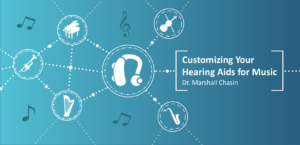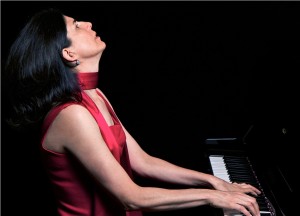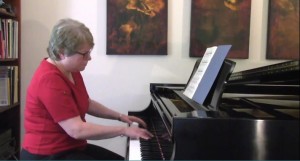Since I was first diagnosed with a hearing loss at age six, I have been a patient of no less than 10 audiology practices over four decades. As an active person and a musician with hearing loss, I have special requirements for my hearing aids. I have learned from my cumulative experience that the most important criteria in selecting an audiologist are first service, then service, and finally service.
By service, I mean repairing your hearing aids quickly when required, but most importantly reprogramming your hearing aids based on changes in your preferences or the profile of your hearing loss.
Servicing levels vary dramatically between audiologists. On the positive end of the spectrum is my current audiologist, Dr. Joanna Roufos of Manhattan Audiology. Before I purchased my hearing aids, Dr. Roufos took the time to explore with me the environments where I spend most of my time and to understand my hearing challenges in each of those environments. For example, I practice the piano every day and need to hear the full range of the keyboard; twice a week I take a yoga class, in which the fans whir loudly and the instructor paces, making speech reading difficult.
Dr. Roufos created six programs for my new hearing aids, ranging from music practice to city quiet to yoga class. She stressed that I was welcome to make appointments as often as I would like for adjustments. Some of her clients visit her multiple times a month. Now that we have established my programs, I see her two to four times a year, but I rest assured knowing that she is familiar with me as a patient and ready to help whenever I need her.
Dr. Roufos’s stellar approach to service gained importance once I started to perform regularly on the piano in concerts and recitals and also during my speaking engagements on “Claiming Your Passion.” Although my hearing aids had a default music program, the setting seemed more designed for listening to music rather than playing music. The program over-amplified the sound, suitable for a listener sitting removed from the orchestra in a concert hall, but not as useful for a musician in close proximity to her instrument, such as a concert grand piano.
Dr. Roufos helped me experiment with the manufacturer’s default music program. She tweaked the frequencies, as well as the degree of amplification. She would send me home with two or three alternative music programs on my hearing aids, with strict instructions to take notes on my experiences. After several tries, we settled on the manufacturer’s default, dampened by three decibels across the board. (For those of you inclined to try this with your audiologist, make sure you experiment well in advance of a performance.)
At the opposite end of the spectrum is the audiologist I had before switching to Dr. Roufos. He did not question me on my listening environments. He spent two 15-minute sessions programming my new hearing aids. After I experienced a 20-decibel drop in my left ear, he told me he didn’t see any reason to reprogram my hearing aids. I called him to express my concern, but he did not return my call. Once after I left only my name and number, he called me back eagerly: he thought I was a new customer. At that point, I decided to switch.
Most audiologists receive a percentage of the price of every pair of hearing aids that they sell, and part of their compensation covers servicing over the life of the hearing aid. Audiologists with a strong patient orientation and liberal servicing policy may charge you more for your hearing aids up-front, but in my experience, if your budget allows, the premium is worth it. I would advise getting the audiologist’s servicing policy in writing at the time that you purchase your new hearing aids.
It’s worth noting that I bargained hard on the price of the hearing aid with the audiologist who subsequently provided me with poor service. The price reduction I obtained was probably only one factor in his service approach, but it may have worsened his proclivity to spend as little time as possible with each patient. The adage that you get what you pay for certainly applies to your audiologist.
In your search for an audiologist, ask yourself, do I find myself in a lot of different environments, each with their own listening challenges? Do I have the time to visit my audiologist often to provide feedback on my experiences with my hearing aid programs and to obtain adjustments to the programs? If you answer these questions with a resounding yes, an audiologist with a strong servicing policy who accommodates frequent visits will be best for you.





Re Service Service,
Can you tell me what brand hearing aids are used here.
Also is this doctor in Manhattan NY?
Thanks , Art
Art, I use Phonak hearing aids, although as a musician, I’m interested in comparing them to Widex next time I buy hearing aids. I always counsel people with hearing loss, however, to work with an audiologist to chose the brand that works for them. It’s a good idea to take advantage of the free trial period that major hearing aid brands offer, and check out at least a few. And yes, Dr. Julie Glick is based in Manhattan. Good luck! Nancy
Any recommendations for an amateur classical concert pianist in Southern California near LAX as far as a musician’s audiologist Dr. goes. And what model of the Phonak do you recommend
Charles, thanks for writing. I’ve gone to Dr. Julie Glick, and thought highly of her, although she is in Beverly Hills–may not be that close to you? I don’t recommend specific hearing aid models. Everyone’s hearing loss is different. Best thing for you to do is to work with your audiologist and try out 2 to 3 different models. Good luck!